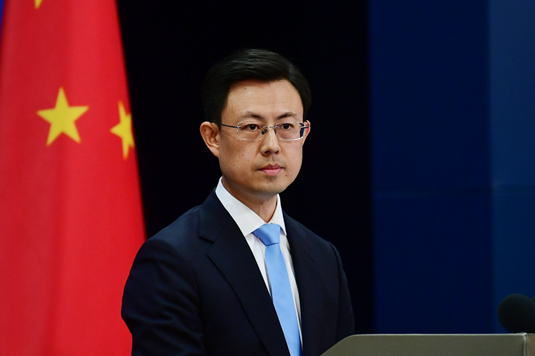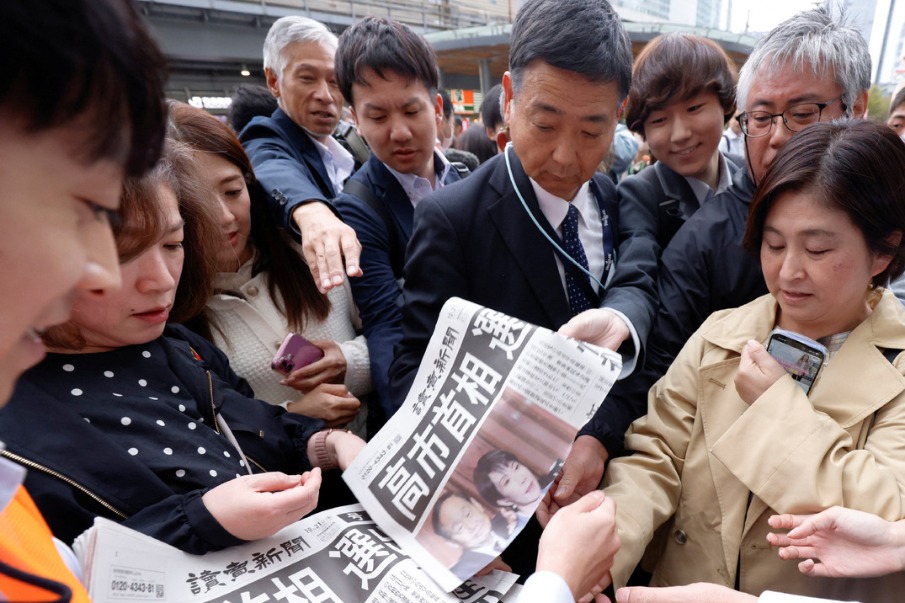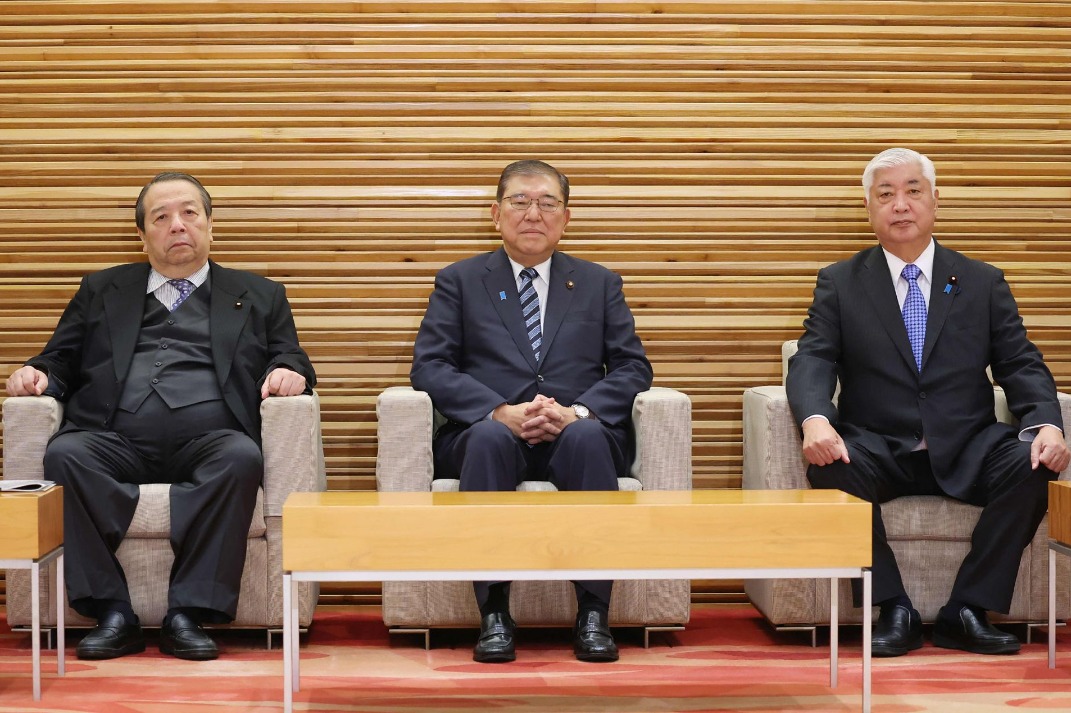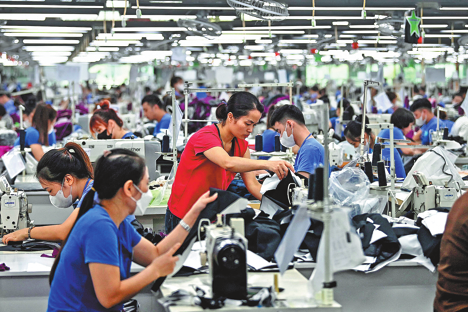Starbucks ousts CEO as market growth slumps

Starbucks, which has struggled this year in its two largest coffee markets — the US and China — on Tuesday ousted its CEO, responding to pressure from an activist investor and its longtime former boss.
The Seattle-based company, the world's largest coffee chain, named Brian Niccol, the CEO at Chipotle Mexican Grill since 2018, as its new chairman and CEO, to replace Laxman Narasimhan, effective Sept 9. Niccol will become the fourth Starbucks CEO in four and a half years.
"[Niccol] has my respect and full support," said Howard Schultz, who has become the company's biggest independent shareholder during his three stints as its leader, in a press release issued by Starbucks.
Narasimhan was removed after approximately 16 months in the job. Starbucks had hired him from Reckitt, a UK-based consumer products company. He was the first external leader of the modern iteration of Starbucks and was personally chosen as the successor to Schultz, who transformed the company from a local coffee chain into a global icon. But during Narasimhan's short time as CEO, Starbucks in 2020 had its first decline in comparable store sales by more than 20 percent.
With the leadership change, Starbucks' shares surged 24.5 percent, positioning the company for a record one-day percentage gain, while Chipotle shares fell by about 7.5 percent in Nasdaq Stock Market trading Tuesday.
Starbucks has more than $36 billion in annual revenue and 38,000 stores across more than 80 countries.
Chipotle has reported $10 billion in annual revenue at its 3,500 restaurants, largely in the United States.
The Financial Times reported Tuesday that Starbucks' board made the decision to oust Narasimhan after its management strategy came under attack from activist investor Elliott Management, which controls a sizable minority stake.
Elliott had been holding talks with the chain over a number of demands, including board representation, the FT reported. The 70-year-old Schultz, who built Starbucks into a global brand, privately expressed his opposition to a settlement with Elliott, according to the FT.
In a statement, Elliott said it viewed the management change "as a transformational step forward for the company''.
In April, Starbucks reduced its financial outlook for the second time this year due to a slowdown in cafe traffic, which affected sales and profits.
In China, Starbucks' second-largest market by sales, the competition has become increasingly tougher in recent years.
Under Narasimhan's tenure, Starbucks intended to accelerate drink-making and open thousands of additional locations in China as part of its "reinvention" strategy. The plan, initially developed by Schultz, emphasized increased automation and aggressive expansion.
Starbucks has been working to establish a first-mover advantage in China since opening its first café in the country in 1999. Under Schultz's expansion plan, the company branched out from major cities into smaller ones, opening hundreds of new stores each year.
Schultz spoke about his travels to China to promote the company and to help connect the US and China through shared values.
But he also wrote in a LinkedIn post in May that Starbucks should start by improving its operations, which were "the primary reason for the company's fall from grace''. "The stores require a maniacal focus on the customer experience, through the eyes of a merchant. The answer does not lie in data, but in the stores," he wrote.
In China, Starbucks faces increasing competition from Luckin Coffee, which has gradually occupied the country's coffee market with fast mobility services and innovative coffee-making.
Luckin Coffee, which was founded in Beijing in 2017 and is now headquartered in Xiamen, East China's Fujian province, has surpassed Starbucks by sales and number of stores, according to its earnings reports in 2023.
Luckin has focused its strategy on its mobile app and integrated delivery services from the beginning, a model that Starbucks later adopted for its Chinese operations.
Luckin operates approximately 13,300 stores, nearly double Starbucks' 6,800 locations in China. To drive its growth, Luckin has leveraged rapid-delivery services, mobile-payment options and unique offerings like a cheese-flavored latte, which has resonated well with Chinese consumers. The company also has previously promoted a coffee infused with Maotai, a famous maker of baijiu liquor in China.
Niccol will need to devise Starbucks' next strategy in China. At Chipotle, he has helped more than double sales from 2018 to 2023 by implementing new safety protocols, modernizing the chain's ordering systems, introducing new ingredients and opening new locations.
Niccol is "a hall of fame restaurant CEO" who will use his savvy marketing lessons from Chipotle to "create brand buzz" at Starbucks, TD Cowen analyst Andrew Charles said in a research note, according to Axios. "He appreciates what makes a premium brand special."
Deutsche Bank analyst Lauren Silberman cut her price target on Starbucks from $115 to $108 per share, while affirming a buy rating. "We believe efforts focused on innovation, targeted promotions and marketing should start to drive improving SSS (same-store sales)," she said.
Silberman told TheStreet.com, a financial news website, that Starbucks launched Spicy Refreshers on April 16 and will launch Summer-Berry Refreshers on May 7, "both unique platforms that should resonate with younger consumers and in the afternoon".
Agencies contributed to this story.






























